Welcome to the GDCA’s blog series! We’ll bring you insights and thought-leadership pieces on the latest trends affecting the GCC data centre market. Keep an eye on our LinkedIn and website for the latest updates. We may also look to open up our blogs to outside contributors, so watch this space!
In our November blog, we’re taking a look at the most talked-about subjects at this year’s Touchdown Middle East, which took place on for the first time on 21st-22nd November at the Gulf Hotel, Bahrain and welcomed 300+ attendees, 150+ companies and 50+ expert speakers.
From the region’s accelerated data centre market growth to the abundance of local talent and the future of AI in the GCC, TDME 2023 covered the gamut of trends and developments shaping the GCC data centre market today – and in the future. Here’s a brief look at the six key takeaways from the event:
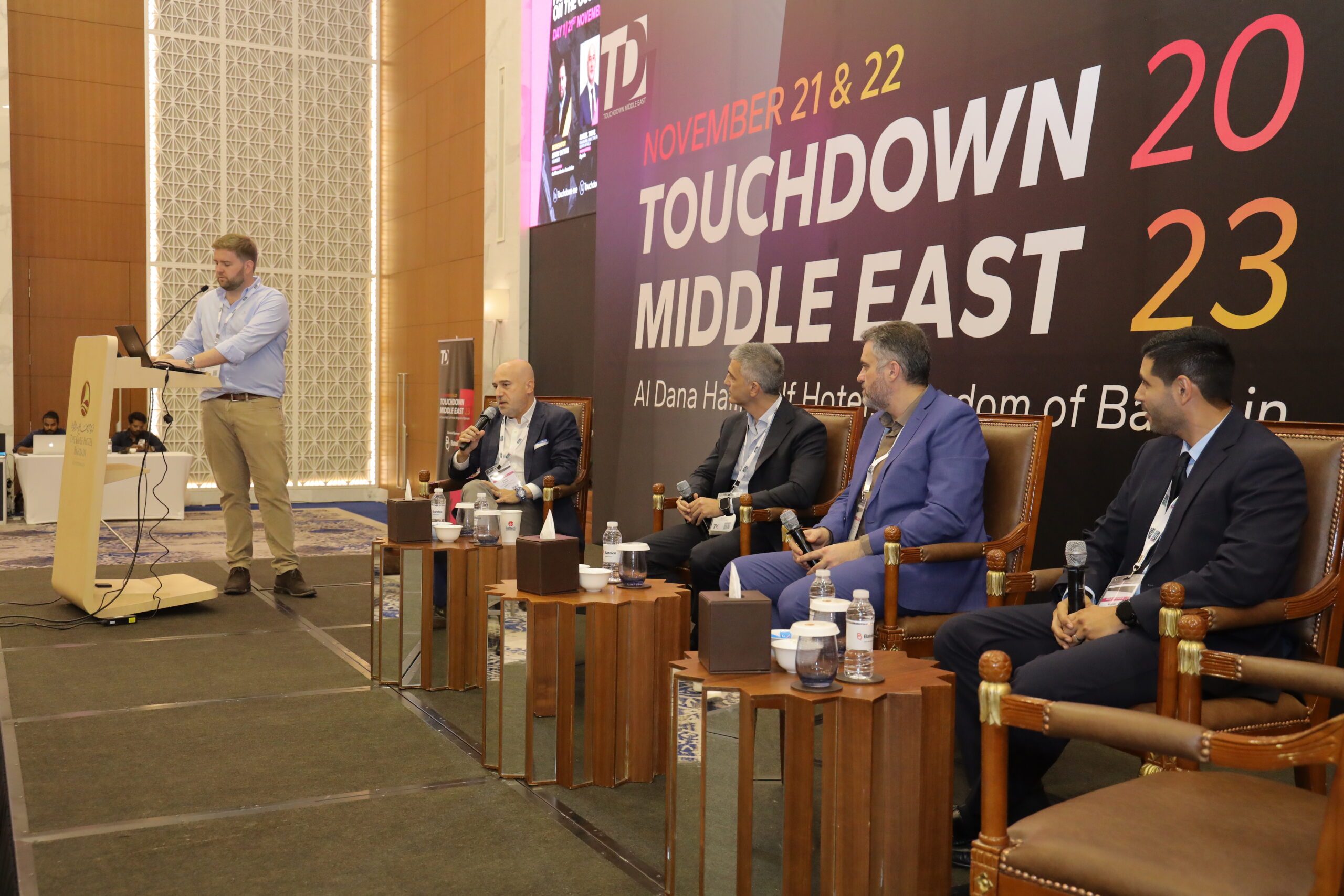 1. The GCC market growth continues to accelerate
1. The GCC market growth continues to accelerate
Throughout TDME, speakers from some of the leading companies in the region illuminated the remarkable pace at which the GCC data centre market is expanding. Fuelled by substantial government support and visionary initiatives, the region is witnessing a huge surge in data centre infrastructure development. Magide Sebtioui, Business Director at Huawei Digital Power and speaker on the opening panel of the event, highlighted the rapid growth of capacity in the region, with around 400MW currently installed across the GCC.
What’s more, investments and conducive policies from governments across GCC countries underscore the pivotal role data centres play in bolstering economic growth and innovation. Per Kamel Tawil, Managing Director Middle East & North Africa at Equinix, who also spoke on the opening panel: “The abundance of projects in the region is a testament to the bright future ahead.”
2. Progress is being made with data laws
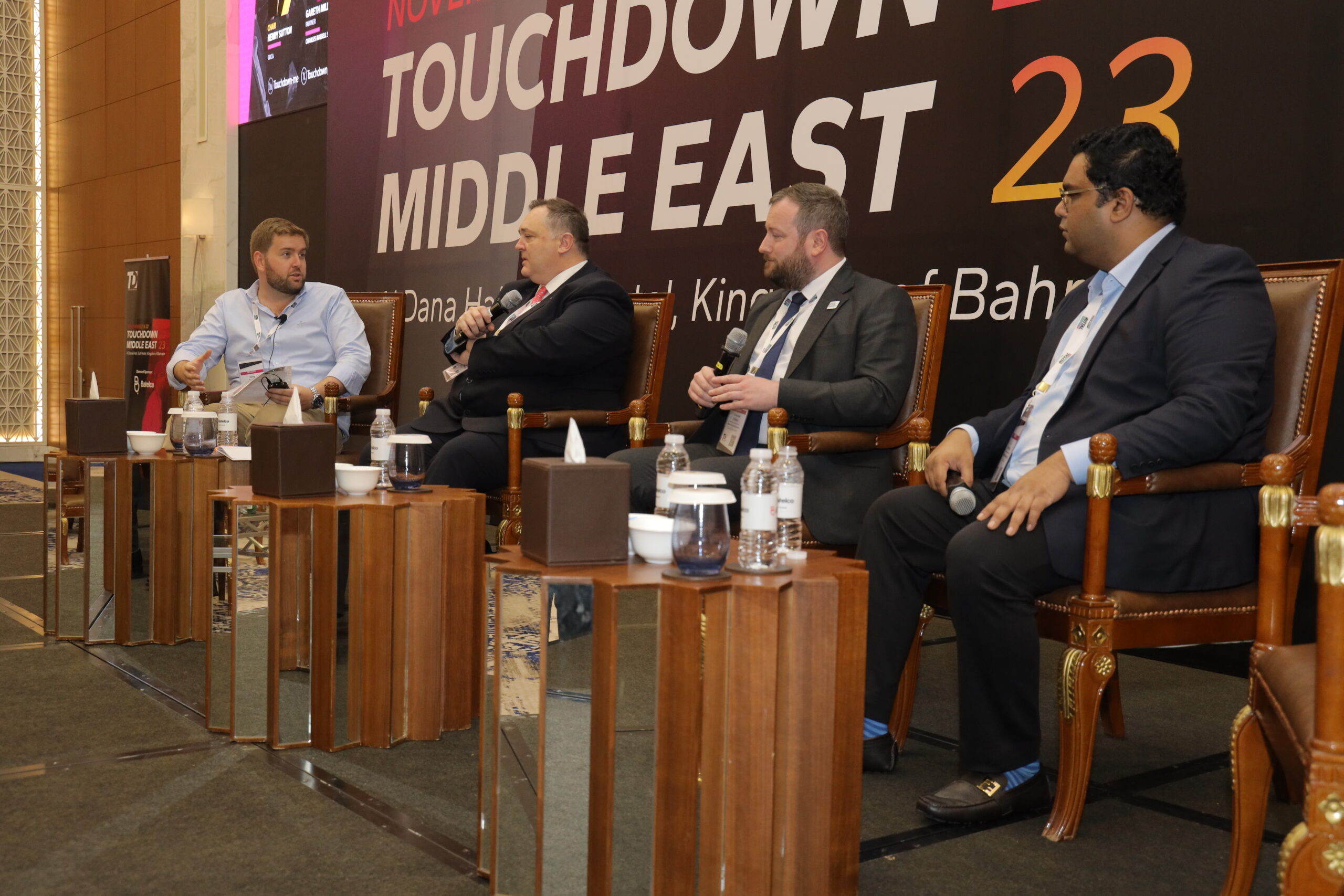 TDME saw the initial launch of the GDCA’s GCC Data Sovereignty & Data Flow Report, which will be launched in full in the coming months. Representatives from law firms Charles Russell Speechlys and Pinsent Masons presented their findings, and the discussion highlighted that data sovereignty laws in the region are still evolving but that work is very much underway to establish comprehensive regulations.
TDME saw the initial launch of the GDCA’s GCC Data Sovereignty & Data Flow Report, which will be launched in full in the coming months. Representatives from law firms Charles Russell Speechlys and Pinsent Masons presented their findings, and the discussion highlighted that data sovereignty laws in the region are still evolving but that work is very much underway to establish comprehensive regulations.
Continuous efforts and collaboration between stakeholders are crucial to finalise these laws, balancing security needs with the imperatives of a global digital economy.
3. There’s an abundance of local talent
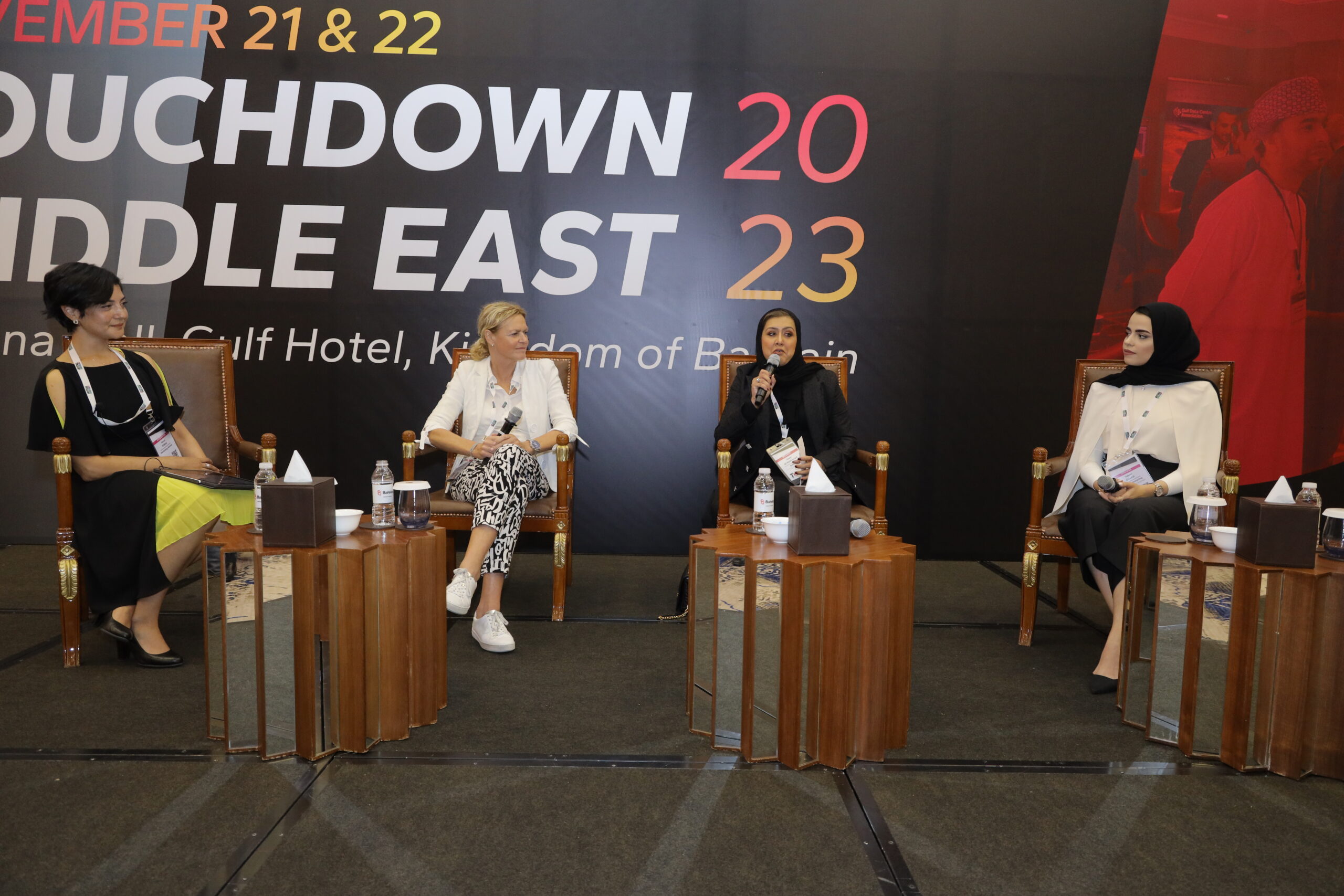 A notable revelation was the abundance of diverse local talent within the region. One of Bahrain’s leading telcos and the event’s Diamond Sponsor Batelco and its parent company Beyon, for instance, has 32% women on its workforce – including its CFO. Compare that a UK counterpart, for example BT, where just 24% of its workforce are women.
A notable revelation was the abundance of diverse local talent within the region. One of Bahrain’s leading telcos and the event’s Diamond Sponsor Batelco and its parent company Beyon, for instance, has 32% women on its workforce – including its CFO. Compare that a UK counterpart, for example BT, where just 24% of its workforce are women.
Takwa Dawdi, award-winning Senior Electrical Engineer from RED Engineering also highlighted that her university cohort was the majority female students – and per the UAE’s Gender Balance Council, 56% of the UAE’s graduates in STEM courses at government universities are women.
However, what was also highlighted by several panellists was the need for heightened awareness and initiatives in educational institutions to channel this talent towards the data centre industry, as well as converting talented graduated into talented employees. Collaborative efforts between industry players and academia can bridge this gap, cultivating a skilled workforce ready to contribute to the sector’s growth.
4. Solar energy has immense potential to be harnessed
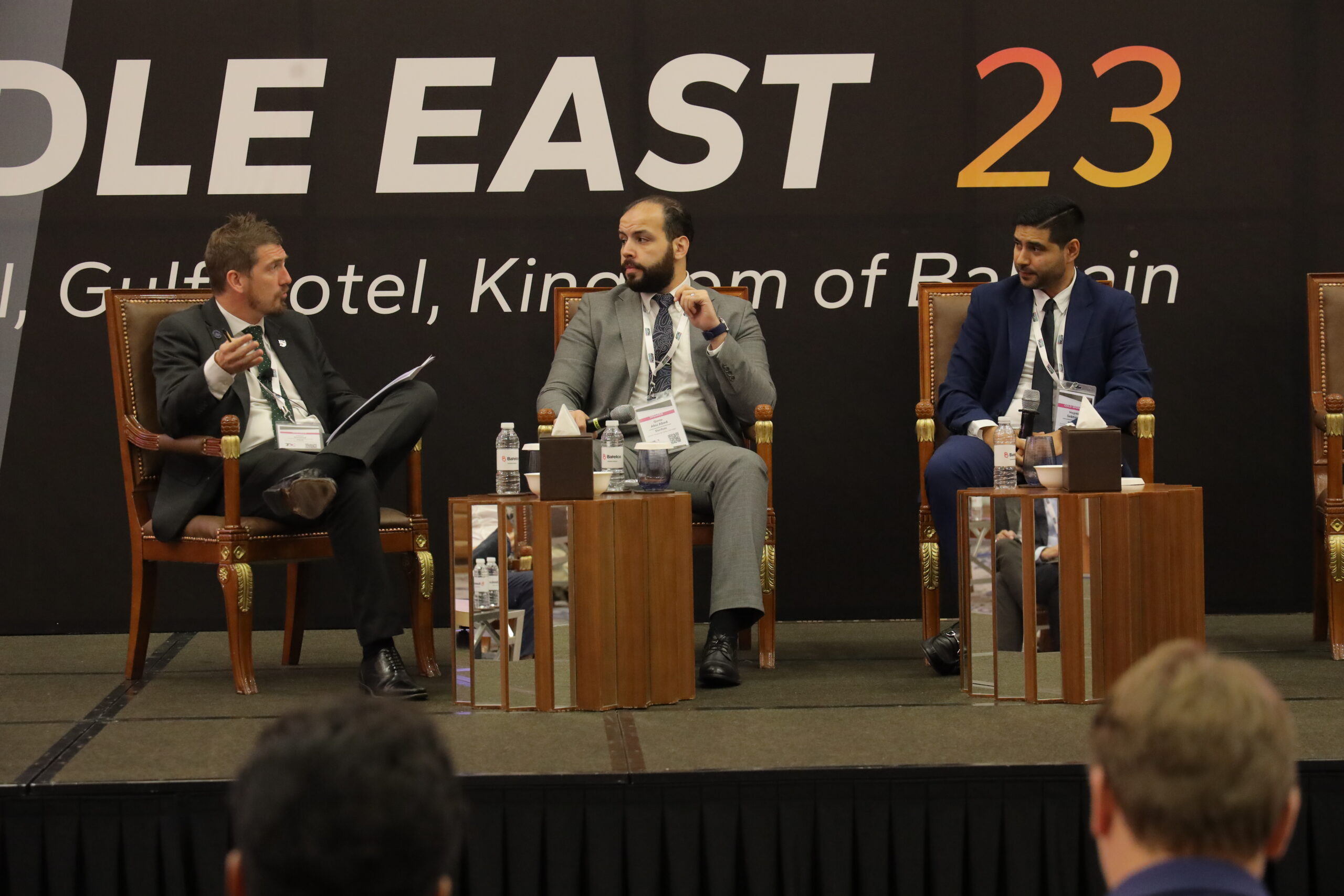 The ‘Solar in the desert: renewable power investigation’ panel, highlighted the region’s keen interest in embracing renewable energy sources to power data centres, particularly solar. As the panel’s Liam Round, Global Business Development Manager at DEIF, put it “Europe ranks second on the ‘sunny’ days list by continent with an average of 190 sunny days. As you can imagine Spain, Italy & Greece lead and the Nordics trails, but all are heavy adopters of Solar energy. Imagine the GCC averages 310 ‘sunny’ days per year! To secure a sustainable future, the shift to clean energy is imperative. By reducing the reliance on fossil fuels and embracing cleaner energy sources, GCC countries can substantially lower their carbon footprint.”
The ‘Solar in the desert: renewable power investigation’ panel, highlighted the region’s keen interest in embracing renewable energy sources to power data centres, particularly solar. As the panel’s Liam Round, Global Business Development Manager at DEIF, put it “Europe ranks second on the ‘sunny’ days list by continent with an average of 190 sunny days. As you can imagine Spain, Italy & Greece lead and the Nordics trails, but all are heavy adopters of Solar energy. Imagine the GCC averages 310 ‘sunny’ days per year! To secure a sustainable future, the shift to clean energy is imperative. By reducing the reliance on fossil fuels and embracing cleaner energy sources, GCC countries can substantially lower their carbon footprint.”
Initiatives aimed at attracting international companies to set up renewable energy infrastructure in the GCC are underway. Dubai for instance, recently announced an ambitious clean energy programme, while Bahrain’s Beyon announced a completely clean-energy powered data centre.
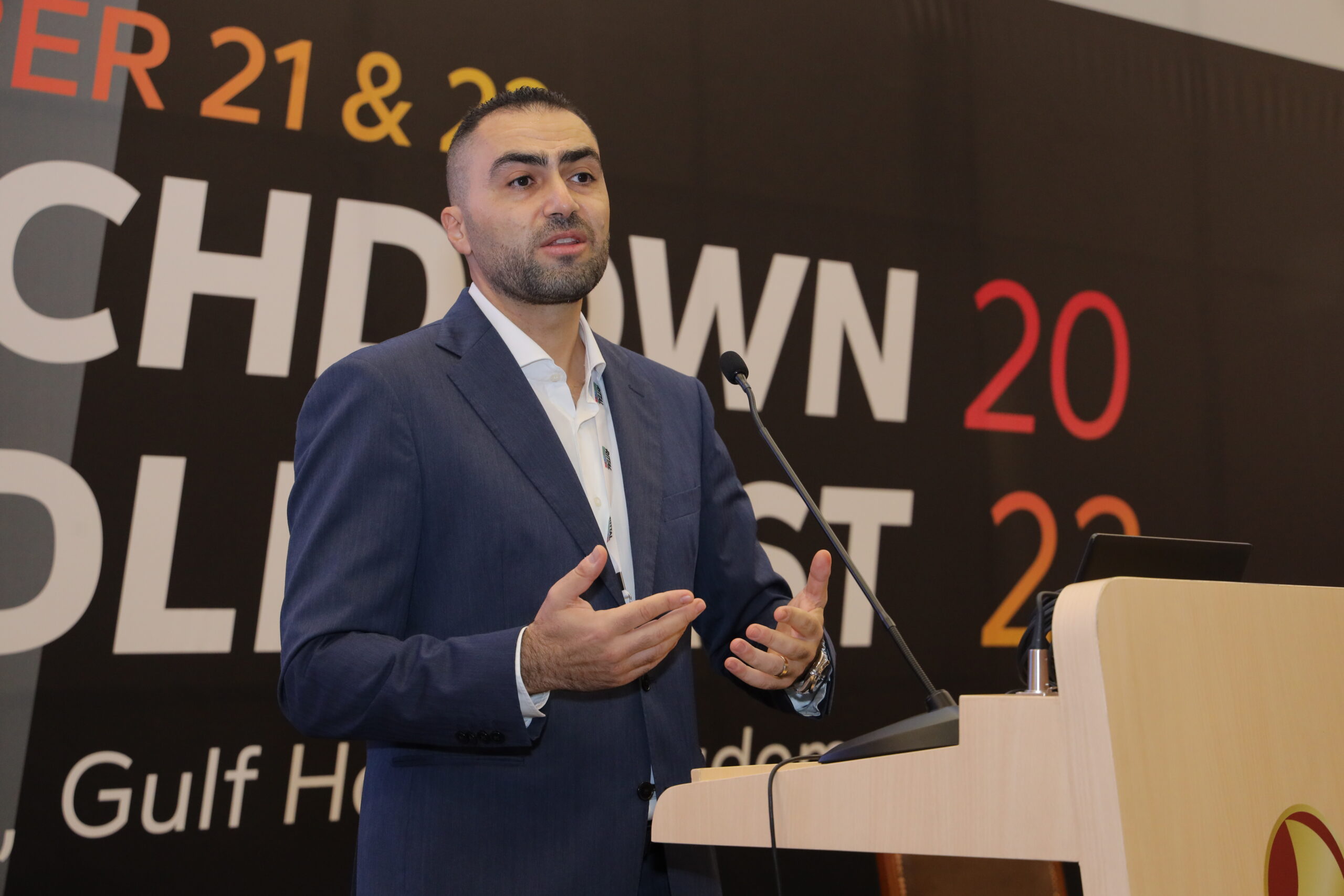
TDME attendees also heard from keynotes Ammar Al Horani, Data Centre Segment Leader – Middle
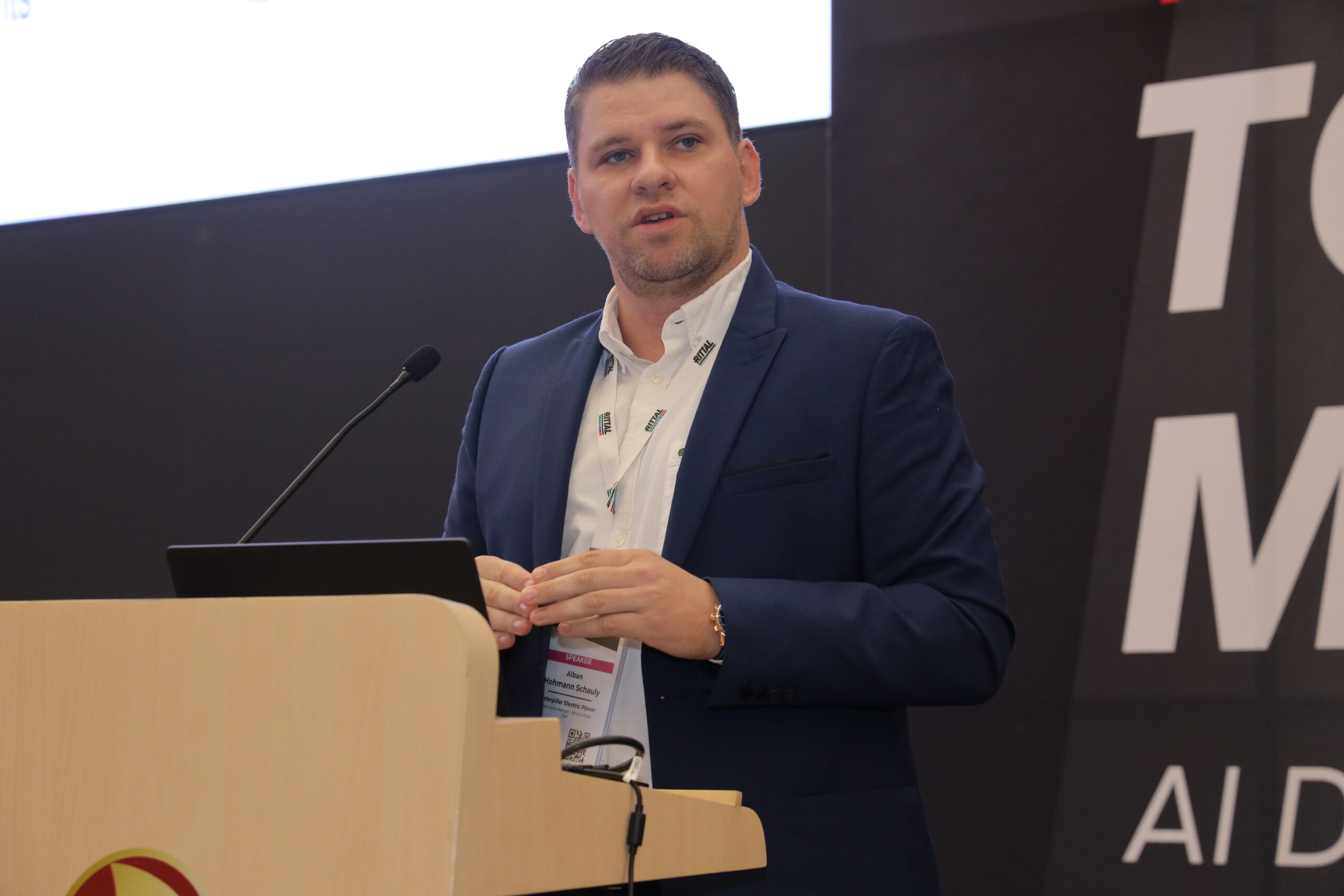
East at Eaton about the sustainability and invest ment benefits of data centres as grid assets, and from Alban Hohmann Schauly, Data Centre Manager – Africa & Middle East Caterpillar about the energy trends and technologies that will support sustainable data centre growth in the GCC. Sustainability then, is on everyone’s mind.
But while progress is clearly evident, further action is required, especially if the region is to gain its foot on the world stage and attracts international companies – where focus on reducing carbon footprint, increasing the adoption renewable energy sources and prioritising sustainability is a must, not a nice-to-have.
5. eSports and eGaming: A driving force
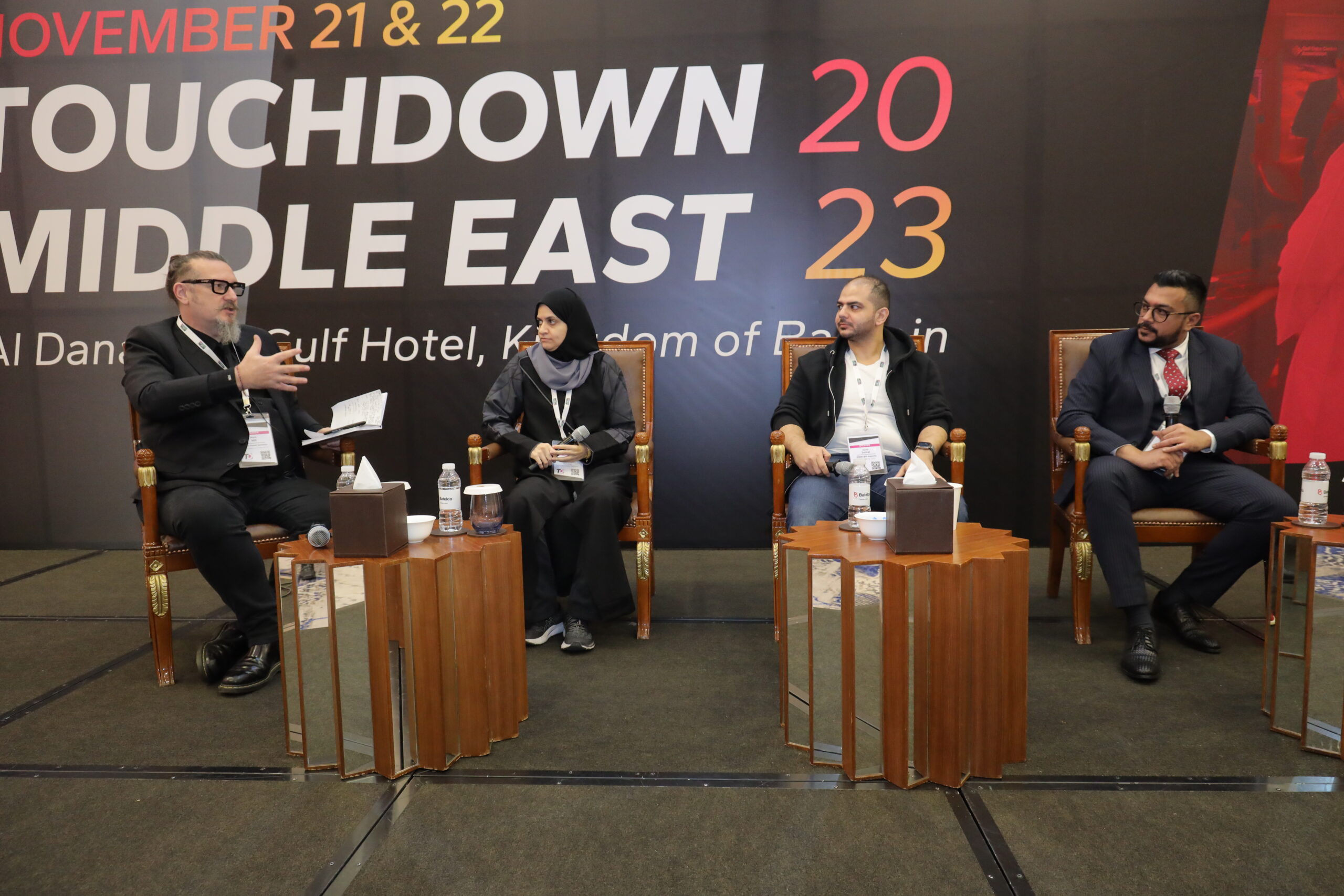 A standout trend unveiled was the region’s immense enthusiasm for eSports and eGaming. The GCC has one of the fastest growing gaming markets in the world, and with the likes of Saudi Arabia’s Savvy Games Group boasting a substantial US$38 billion fund dedicated to establishing the Kingdom as a prominent player in gaming, it’s evident that gaming-related investments are a focal point. This burgeoning sector not only drives demand but also presents lucrative investment opportunities within the GCC – especially since the gaming industry now makes more money than the music and movie industries combined.
A standout trend unveiled was the region’s immense enthusiasm for eSports and eGaming. The GCC has one of the fastest growing gaming markets in the world, and with the likes of Saudi Arabia’s Savvy Games Group boasting a substantial US$38 billion fund dedicated to establishing the Kingdom as a prominent player in gaming, it’s evident that gaming-related investments are a focal point. This burgeoning sector not only drives demand but also presents lucrative investment opportunities within the GCC – especially since the gaming industry now makes more money than the music and movie industries combined.
What was clear in the discussion, is that, although latency levels have dropped significantly in recent years, there is still ample room for improvement – starting by having publishers put racks in region.
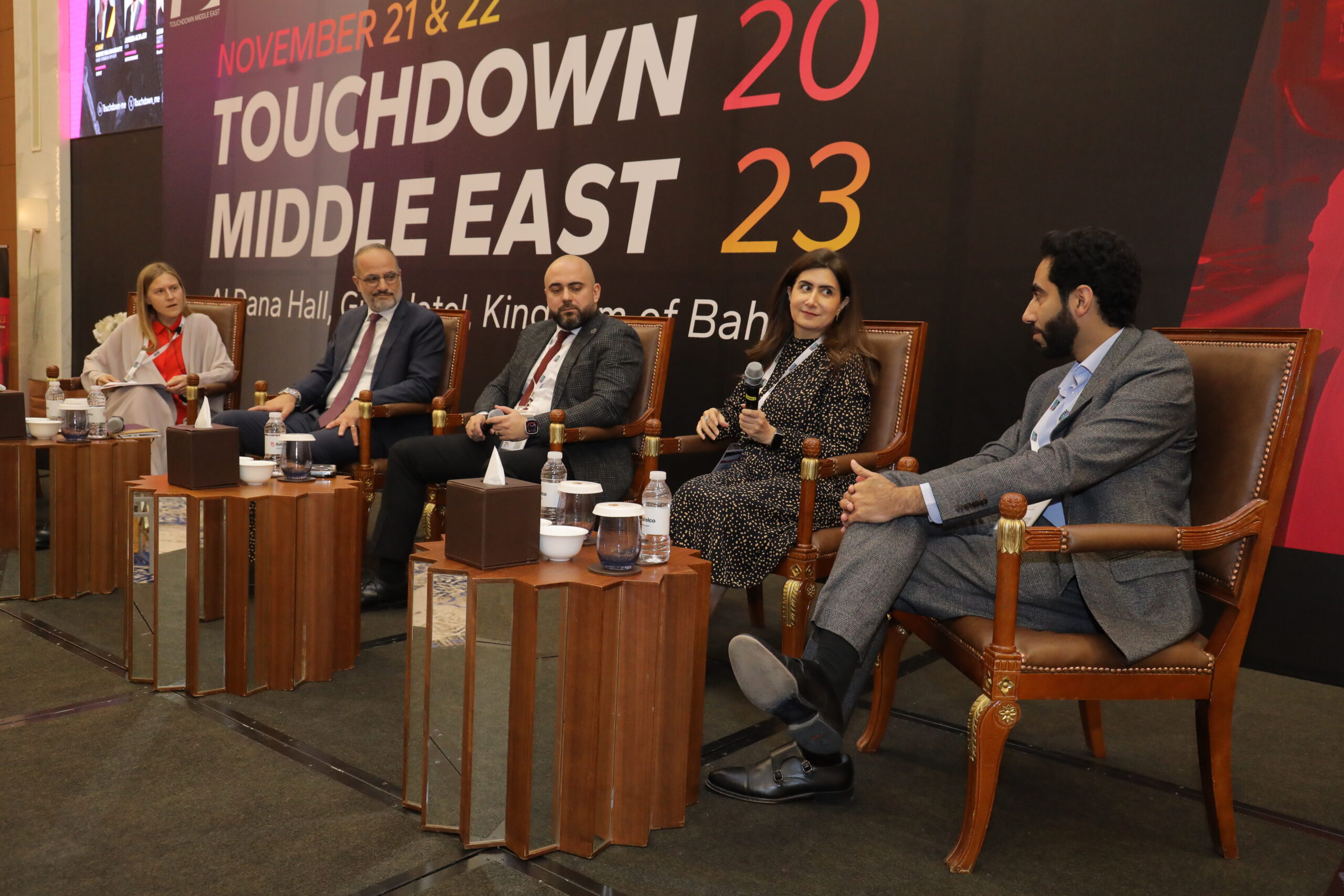 6. AI is making it’s mark
6. AI is making it’s mark
Artificial Intelligence was a hot topic across the event. From supporting data centre construction and R&D, to enabling smart solutions in data centre infrastructure to powering the region’s future smart cities, AI is prolific across the board.
As panellists in TDME’s final session, ‘Showcasing the future: what’s next?’, discussed: AI is now more than just a buzzword – and the industry needs to be prepared to meet its incoming tidal wave of demand.
The future of the GCC data centre market
As the region looks to the horizon, innovations in AI, the evolution of Smart Cities, the pursuit of sustainable practices and a future brimming with technological marvels, Touchdown Middle East provides a platform for crucial discussions today that will help shape the data centre ecosystem in the GCC tomorrow.
—
Want more insights on the GCC data centre market? Keep an eye out on our Events page to see where we’ll be taking the next GDCA event, and watch out on our News page for the launch of our latest reports. We’ll also be bringing you more blogs covering the topics discussed at TDME 2023, so stay tuned!
